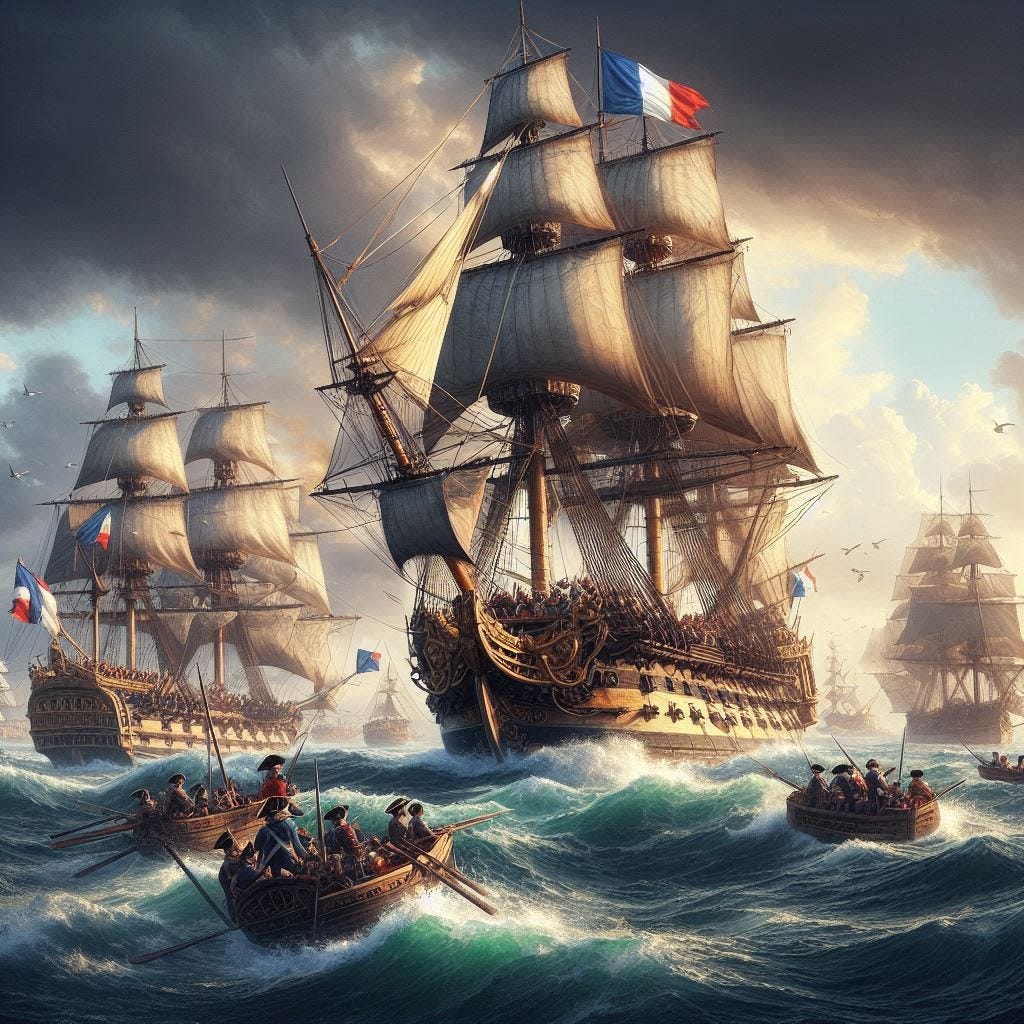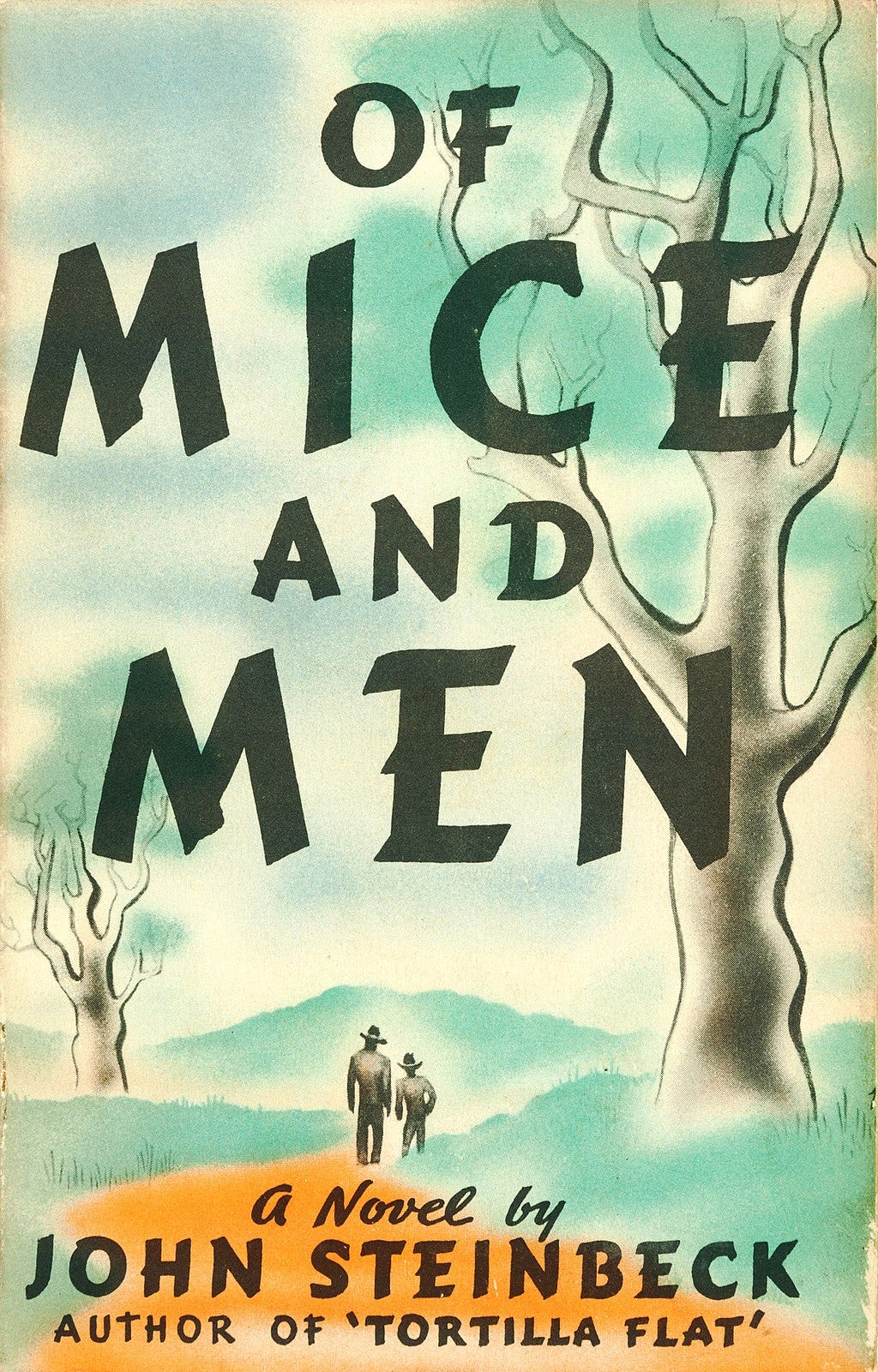The Mysteries of History (February 6)
Franco-American Alliance, Of Mice and Men, Reagan Doctrine
“Those who cannot remember the past are condemned to repeat it.” — Spanish-American philosopher George Santayana, 1905
1778 — Franco-American Alliance
public domain image from wikimedia commons
During America’s Revolutionary War, France supported the at-the-time British Colony, fighting in behalf of the Americans against France’s arch-enemies, the British. Why did they do so? Ostensibly because they admired America’s democratic ideals (they would have their own Revolution a few years later), but also because America agreed not to interfere in France taking control over Britain’s colonies in the West Indies once the war was over; additionally, the French were also still reeling from, and bitter about, their loss to the British in the French and Indian War of 1754-1763.
France’s naval help was critical to America’s victory over the British in America’s quest for self-rule.
Questions: Why is the French and Indian War called that? Did the French ever take over the formerly British colonies in the West Indies? If so, when, and do they still control those areas? Where exactly are the West Indies? How many colonies still exist in the Americas, and which are the countries that control these colonized lands?1937 — Steinbeck’s “Of Mice and Men” Published
public domain image from wikimedia commons
John Steinbeck (1902-68) followed up his successful Twainesque comedic novel Tortilla Flat with the not-one-bit funny Of Mice and Men, a poignant tale set in Steinbeck’s native Salinas Valley, more specifically the area near Soledad.
Steinbeck wrote several other acclaimed novels and short story collections, such as (in addition to the two mentioned above): Grapes of Wrath, East of Eden, The Winter of Our Discontent, The Wayward Bus, Cannery Row, The Red Pony, The Pastures of Heaven, and The Long Valley, as well as the travelogue Travels with Charley. Many of Steinbeck’s novels were used as the basis for movies and television miniseries presentations. He won Pulitzer Prizes in 1940 (for Grapes of Wrath) and 1962 (for Literature).
Questions: Have you read "Of Mice and Men"? Have you seen any of the four movie adaptations of it? If you have seen more than one of the films, which rendering is your favorite? From which poem was the book's title taken? Which is your favorite Steinbeck book? Which is your favorite movie made from a Steinbeck story?1985 — The Reagan Doctrine
public domain image from wikimedia commons
Ronald Reagan said in his State of the Union speech on this date in 1985, “Freedom is not the sole prerogative of a chosen few; it is the universal right of all God’s children.” He went on to utter some other memorable and high-minded-sounding things, such as, “We must stand by our democratic allies. And we must not break faith with those who are risking their lives—on every continent, from Afghanistan to Nicaragua—to defy Soviet-supported aggression and secure rights which have been ours from birth” and “Support for freedom fighters is self-defense.”
This perspective and agenda of Reagan’s came to be known as the Reagan Doctrine. As a result, Reagan ultimately credited himself with aiding the “freedom fighters” in Afghanistan, Angola, and Nicaragua. There is controversy, though, over whether or not those interventions or meddlings resulted in more harm than good (in other words, were they Pyrrhic victories); critics say that these “heroic” deeds only caused violent conflicts in the above-named countries to be escalated and prolonged, and to what end? To install or perpetuate the rule of despotic regimes in those “rescued” nations, the naysayers claim.
Questions: What was Reagan's profession prior to politics? Who was Bonzo? Was Ronald Reagan's wife Nancy interested in the occult? Did she have any influence over her husband's decisions and policies? Did Reagan's children share his political views? When and why did Reagan change his political affiliation from Democrat to Republican?









